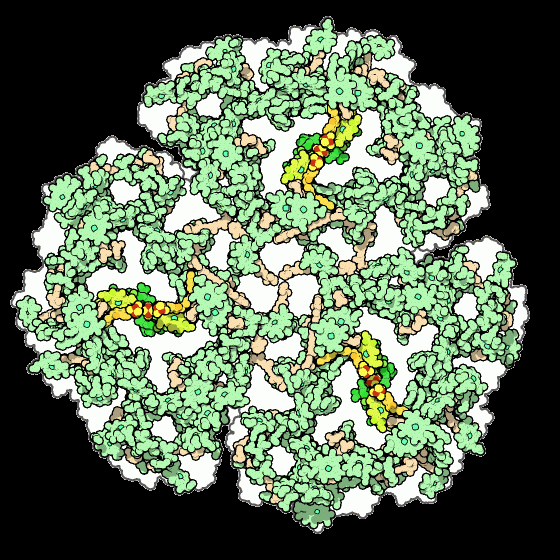https://nitter.1d4.us/SmugFecundity/status/1661002806059319298
Translation: I'm embarrassed by the fact that I didn't know the answer to my kid's math problem, and that makes me mad, so I will now lash out at the institution that caused me to feel this.
Also if anyone else's kids are terrible at anything then it's the other set of parents' fault for not being there for their child
Is this what happened with common core [ie "They changed the way they teach kids math, and I dont understand it now, therefor it is bad"] or is common core actually bad I was never clear.
Having standards at all is good, especially for kids who move a lot. The specifics of the standards are not ideal, but an improvement for most states. Then you have the modules, which are a set of prescribed units and lesson plans which implement the standards and are distributed to teachers. The modules are fucking awful, not evidence based, and were just written by textbook execs (not by curriculum planners or education researchers or even rank-and-file teachers).
Every school can either be an Adapt school or an Adopt school. Adopt schools teach the modules as-planned, page-per-page. Adapt schools receive different funding incentives but have more flexibility in how teachers teach the standards. Some Adapt schools still really hammer away at standardized testing and push the modules anyway, but generally Adapt schools are better.
Edit: also, regarding Common Core and math, the standards focus a lot less on memorizing pen-and-paper algorithms and a lot more on number sense and understanding why things work. So homework often looks more complicated because the skills it’s teaching are simple to hold in your mind, but harder to print on a page.
So not only did they change how math was taught, but most parents today were taught prior to these standards existing. Their kids are learning how to be able to change how they approach math problems without losing intuition, which is the very skill that the many parents trying to help them lack due to years of subpar math education.
so tl;dr better way to teach basic math?
ETA: I did actually read i just want to get to the core question I was asking lol
Yeah, the Common Core math standards are better on average than previous standards
you want to know the bare minimum for employment that's a 12 minute warehouse safety training video. Frankly that isn't enough education to fill your time until you reach the point where you are old enough to legally or physically work
Its literally basic linear algebra, every adult with a high school education should know how to do this. Education should be the goal.
It's a bit confusing in presentation and likely something you'll struggle with if you haven't bothered doing textbook math problems in the last 20 years.
But that's maybe not something you want to show your ass on
This isn't even linear algebra, there is no set theory going on here at all.
It's a pretty simple case of, find a common denominator, then follow simple BEMDAS ( Brackets, Exponents, Multiplication/Division, Addition/Subtraction) procedure. No testing, no complex relationships to remember, no real shortcuts to remember either.
the linear algebraic concept is that the equation becomes underspecified (and tautological in this case) if both sides of the equation simplify to the same terms. if you had two different expressions with a single variable and an max exponent of 1 that were set equal you'd either have 1 solution (the consistent option) or none (the inconsistent option. but you only get multiple solutions if the second expression adds no new information about the value of y.
it's intuitive to jump to simplification but it's good to know why you're applying a specific technique. imagine if there were a follow up question that asked you to specify a third expression that equaled the first two but led to zero solutions. basic simplification won't yield an answer because you need to provide something inconsistent - you get there by fixing one of the two terms and providing a different coefficient for the other.
Just...expand the brackets and see if anything jumps out at you. Come on now.
"Getting unstuck by applying a basic technique you already know without necessarily having a plan for what to do next" is a useful skill in countless areas of creative and technical work.
You don't need to expand the brackets, just multiply both sides by 12 to yield 6y + 3 = 3 + xy, cancel the 3s from each side, now you have 6y = xy so x = 6.
They don't teach that skill, public education math just speeds through everything as fast as possible because students are products.
User name contains "smug", can't do a 12 year old's math question.
Yup, checks out.
this is an easy problem but my hot take is that if kids fail to do their math homework, it should be the teacher's burden and not their parents' tbh. i mean come on man, it's been a decade since i last had a math class. i barely remember the quadratic formula. the only thing i'd be able to teach is how to cheat with wolfram alpha or something
Wolfram Alpha can take you through the steps. So if you're stuck, its handy to find out what you did wrong.
But then its advised that you do another problem to apply what you learned
It's actually a fairly new feature in the last five years. Super helpful though.
There's a resource which explains how an equation works in simple English? Suck it, Math Wikipedia!
Parents spending time with their kids and working together is cool and good though.
Not necessarily on math, or even school work, but I think it's healthy that a parent should be the first person a kid turns to for help.
How would that help with math comprehension? Practice is essential to learning math.
When I help my kids with their math homework, we have the laptop open ready to google stuff and some scrap paper ready so they can teacher me how to do what they’re working on. I think for a long time I really went full banking model and felt like I had to act like I already knew everything they were asking for help with. This way is just easier imo.
it’s been a decade since i last had a math class. i barely remember the quadratic formula
I'm gonna be honest I graduated hs less than two years ago and can't remember a single part of it.. and I was in advanced math
You may be wondering how will we build robots with literally no education in maths and the answer is that barely functional is a key word in that sentence
The Common Core standards (different from the Common Core modules, which are ass) spend a lot more time developing number sense and making sure kids understand why things work, which make problems like this very doable for a 12-year-old.
It's strange because as someone who taught at the college level, this is the type of problem I'd absolutely expect a 12 year old to reason through, and a first year university student to struggle with. Probably because something about high school math beats any reasoning skills out of you. Although there's another reason, often when we ask these types of problems in calculus or linear algebra classes, instead of the little box going "what's this number", we'll use a letter to denote a parameter (say "a"). Which is a better way to communicate with colleagues, but it seems to short circuit a lot of students' brains.
Im having flashbacks to like an entire year of high school in which every two weeks, we were given arbitrary and confusing instructions to essentially reformat an equation, followed by a test which I would bomb because they wanted me to reformat the equations MORE, followed immediately by the next class lesson being like "okay here's why we needed that shit reformatted, here is a new equation to plug it all into that makes it very obvious if you did last weeks exercises correctly"
literally just getting C's and D's back every second Monday, and then 20 minutes later they actually explain what the fuck we were doing and now I know how to do last Friday's test
Even for high school that's really bad teaching. I know one issue I see is students will sometimes do a manipulation they know without thinking about what goal they need to reach. This seems like it would actively feed that impulse.
Oh that's so dumb. I agree with the antimath guy on this question in particular
i didn't use algebra until i started working with my hands and trying to do things on a limited budget and using found/scavenged materials. it's great for creative projects too, like developing patterns to maximize use of materials / minimize waste. have x poles, y fabric, z fasteners, poles need to be at corners and no more than b meters apart. what's the largest area you can fence off where 1 side is some set distance? what's your limiting resource and if you spend another $20, how does it change?
it's unfortunate how shit the west is at teaching math. i tried to pull the "i'm just not good at math lol" thing, but one of my parents was a math teacher and forbid it. sat at the dinner table a lot of nights running through sets of problems until i could see patterns or use rules to reorganize expressions until they gave up their secrets. i'm not like some kid with an imaginary abacus adding large integers in my mind palace while my eyelids flutter, but if you give me some kind of problem i can sit down with it and tease out the math enough to play around. and it does feel like play ever since it started clicking ~30 years ago.
one of my recent creative ones was a friend who had like ~6 different colored skeins in a variety of amounts and could crochet various rows at various thicknesses, but wanted to know options for repetitive patterns without having to buy more shit and would like to use up as much of certain colors as possible, ideally all colors completely. just enough moving parts to be a math problem. they thought i was a warlock for being able to throw out multiple pattern options after dorking around with a sheet of paper for 30 seconds.
but this twitter douche is correct. all we should teach in school is whatever delights billionaires.
Math got so much easier for me once I learned that every equation I'm given is actually a puzzle with multiple potential moves. Really helped me recognize and develop the ability to know when a problem is approaching a solved form.
I had a customer whip out his phone to add 800+450 together and I think maybe we should do more math.
Right. I let him know what the total was and he still felt compelled to enter it into his calculator app.
Made sense after I looked at it a bit but I've never seen a question worded like that before so it did throw me for a loop.
Anyway abstract reasoning development is cool and good and kids should learn it, this guy's probably got that capitalist realist brain that thinks we should be teaching kids exclusively shit like, idk welding or making spreadsheets.
yeah, there's infinite solutions (ie the equation becomes tautological) if you set the unknown coefficient to 6 because both sides simplify to the same equation. the question is just testing if you know what makes it impossible to solve for y.
Me using geometry and fractions every day at work:
:galaxy-brain:
I do trigonometry regularly when somebody's using up the CAM software license and I need to do some quick and dirty edits to some toolpaths.
Critical support for this making the STEM freaks angry, but otherwise gulag.
The M in STEM is for math, lol, STEM people would want this type of education.
If i had my way calculus would be at the beginning of highschool, not the end
I genuinely enjoyed calculus conceptually. Was I good at it? No. I have heard an argument that it could be taught at a much younger age if done properly.
It actually follows much more directly from learning basic algebra than geometry does, because it's all about slope relationships. Geometry follows much more naturally from Calc 1, and then goes into Calc 2 when you do integration and rotations. That's just my opinion though.
I do want to throw assloads of money at education. Shrink the class sizes pay the teachers more, rework the curricula. All of it
Maybe. It depends a lot on the teacher ime. I had two really bad calculus teachers in HS (one went on mat leave halfway through) and really struggled, one AWFUL calc professor in college, and then two good ones.
That's my point. It's funny when they get huffy about anti-intellectualism when it's not being directed at the humanities.
If CHUDs had their way, it would be Bet (BUSINESS, (and only a little) engineering, and technology).
They'll claim to be the standing authority on Biology when you're talking about LGBT people or climate change, and then it's all "science is for nerds" when they aren't doing lysenkoism-but-redpilled, or if they are truly backed into a corner and having the more popular opinion is all they have.
I'll be goddamned if I let my child develop abstract reasoning.
:countdown: until DeSantis bans ARD (abstract reasoning development)
Remember when CHUDs were laughing at some teachers calling math "a product of whiteness".
Meanwhile DeSantis gets to call everything reverse-racist and no one bats an eye. Pretty interesting.




















